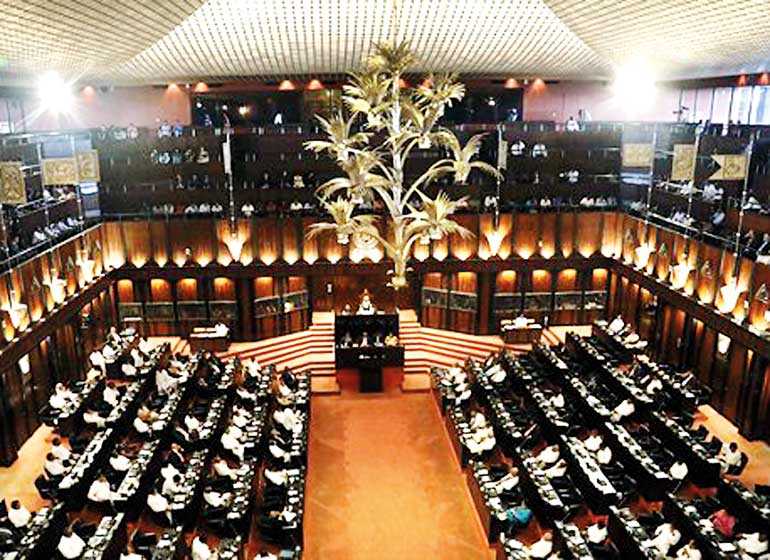Tuesday Feb 17, 2026
Tuesday Feb 17, 2026
Saturday, 30 June 2018 03:41 - - {{hitsCtrl.values.hits}}

By Tassie Seneviratne
People of Sri Lanka in toto are so distraught with the present Government that, comparing with relative demerits, they show preference to the once boogey Rajapaksas for rescue from the present predicament.
This Government only caters for Parliamentarians, their kith and kin and cronies who, like pigs wallowing in cesspits, are scavenging the body politic and delivering nothing at all to the people. The Rajapaksas, with all the horrors, did deliver some of the things that the majority people seems to appreciate.
I was myself so distraught that I believed only a putsch against the Government could put things right. Since then I have had the privilege to discuss the topic with an eminent person far more competent than me on these matters.
By a coincidence I also read Ranjan Phillips’ (RP) writing in the Sunday Island of 17 June: “What is conveniently forgotten in this assessment is that for a long time our Parliament used to have far more honest parliamentarians than dishonest members.” RP only touches on the fact of there being more honest parliamentarians in the long past but has not gone into the questions of why, how, and whence forth our paradise island got dragged into this hellhole.
During the period of honest parliamentarians that RP speaks of, the people voted for their representatives, constituency-wise. People of each constituency voted for the representatives of their constituency and parliamentarians were answerable to the people of their respective constituencies. Their re-election depended on their catering to the people of their constituencies.
I remember how a powerful Minister such as Felix Dias Bandaranayake (FDB) who was hard on public officials who considered him arrogant, sitting on culverts and logs surrounded by constituents, discussing the needs of the people in his constituency.
There was also a short time when I had to act as Personal Security Officer to Minister P.B.G. Kalugalla. When he was in his house, constituents not only walked into his house freely, but even followed him into the washroom. I tried to stop this and enforce some kind of order. The Minister politely told me that I need not come and awaited his regular body guard cum driver, who was far senior to me, to come back. The two of them hit it off well.
I can go on naming more Parliamentarians of the past such as Joseph Michael Perera who catered to the Ja-Ela constituency in the pre-1978 period. My aged sisters still remember him as ‘our MP’ as he keeps himself informed of family bereavements, memorial services, etc. and does not fail to visit and condole with them and also enquire with concern about their wellbeing.
The blow for representative democracy came with the 1978 Constitution which, insidiously crafted, made way for authoritarian rule. Voting now is to political parties and parliamentarians are now beholden to respective party leaders for their appointments and there is no representativity. Party leaders, with agendas of their own, have become the bane of representative democracy. They were quite aptly described recently as impediments to the cleansing of the incumbent parliament, pointing out that they will not refrain from sullying future Parliaments. (Sunday Island Editorial of 10 June). It is the alienation of parliamentarians from their voters that has set the rot in.
A case study of a dedicated politician post 1978, becomes relevant to illustrate a point: Hon. MKDS Gunawardena, a former Inspector of Police, was SLFP organiser for Seruwila Constituency in the Trincomalee District, during the period 1981-1987 that I knew of. He lived in, moved with and looked after the needs of his constituents. Whether it was a natural disaster, a clash over irrigation water distribution, a sudden death or any other calamity, he was always there to assist Government officials – Government Agent, Police and the Grama Sevaka, to reach an amicable settlement.
During elections, he regularly won the Seruwila Constituency for his party with large majorities, but failed to enter parliament because he did not get sufficient preferential votes from the other constituencies in the District – A travesty of justice not only to him but also to the constituents of the Seruwila Constituency! Party leaders however, seem to revel in their autocratic powers regardless of the people.
Only a return to constituency-wise elections will pave the way for representative democracy in its true sense. What plausible reason is there not to?